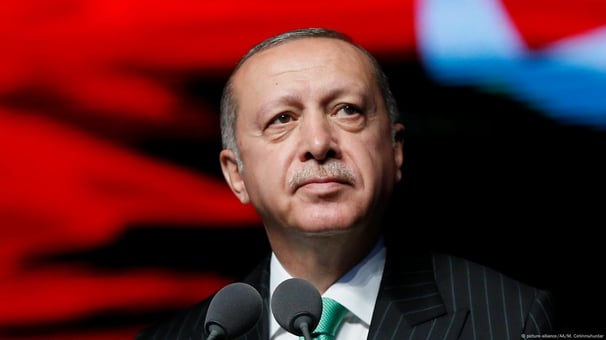Turkey Faces $1 Billion Loss by Supporting Pakistan
LATEST NEWS


Estimating Turkey's overall business loss from India's actions—canceled travel bookings, revocation of Celebi Aviation's security clearance, and Maharashtra traders boycotting Turkish apples and other goods—requires piecing together available data. The following breakdown is based on recent reports and posts found on X, with figures converted to USD for consistency (using an approximate exchange rate of ₹83.5 to $1 as of May 2025). Note that precise, comprehensive data is limited, and some figures are estimates or projections. I’ll also critically examine potential gaps in the narrative
1. Tourism Losses (Canceled Travel Bookings)
Context: Turkey welcomed ~300,000–330,000 Indian tourists in 2024, contributing $240–$291.6 million to its tourism revenue. A 60% drop in bookings and a 250% surge in cancellations followed India’s boycott calls after Turkey’s support for Pakistan during Operation Sindoor.
Estimated Loss:
If 60% of Indian tourist revenue is lost, that’s ~$144–$175 million annually.
Posts on X suggest a $180–$240 million tourism loss, aligning with the lower end of this range.
Caveat: Tourism is ~4–5% of Turkey’s GDP, so while significant, this loss is a fraction of its $1.1 trillion economy. Some sources argue the impact is overstated, as Indian tourists are only 0.5% of Turkey’s 62.2 million annual visitors.
2. Celebi Aviation Security Clearance Revocation
Context: India revoked Celebi Airport Services’ security clearance, affecting its ground handling and cargo operations at nine major airports (Delhi, Mumbai, Bengaluru, etc.). Celebi employs 10,000+ people in India and has invested $220 million over 15 years.
Estimated Loss:
A post on X claims Celebi lost ₹2,000 crore (~$240 million) in market cap due to the revocation.
Celebi’s annual revenue from India isn’t publicly detailed, but its operations at major airports suggest significant contracts. If we assume a conservative annual revenue of $100–$200 million (based on its scale and 3,791 jobs at risk), the immediate loss could be in this range for 2025, with long-term losses higher if contracts aren’t restored.
Caveat: Celebi is suing India, arguing the revocation was vague and unjust. If reversed, losses could be mitigated. Other ground handlers (AISATS, Bird Group) are stepping in, minimizing disruption to India but not necessarily to Celebi’s revenue.
3. Boycott of Turkish Apples
Context: Maharashtra traders, especially in Pune and Vashi, halted Turkish apple imports, which contribute ₹1,000–₹1,200 crore ($120–$144 million) seasonally to Pune’s fruit market. India imported 11.76 lakh tonnes of apples worth over $120 million in 2023. Traders are switching to domestic (Himachal, Uttarakhand) and alternative imports (Iran, New Zealand).
Estimated Loss:
If the boycott eliminates most of the $120–$144 million apple trade, Turkey loses this amount seasonally (typically January–mid-year).
Uttar Pradesh traders also joined the boycott, suggesting a broader impact, though some pre-ordered shipments are still arriving, slightly offsetting immediate losses.
Caveat: Apples are a small fraction of Turkey’s $3.78 billion exports to India. Traders selling existing Turkish stock as “South African” apples to bypass the boycott could reduce the effective loss.
4. Boycott of Turkish Marble
Context: Turkey supplies 70% of India’s marble imports (14–18 lakh tonnes, $300–$360 million annually). Udaipur’s Marble Processors Association (125 firms) and others have called for a ban, with Kanpur and Jaipur traders canceling orders worth crores.
Estimated Loss:
A full boycott could cost Turkey $300–$360 million annually.
Partial adoption (e.g., 50% reduction) would still mean $150–$180 million in losses, as Udaipur alone imports thousands of tonnes.
Caveat: India can source marble from Italy, Iran, or Egypt, but scaling up takes time, potentially limiting the boycott’s immediate impact. Turkey may redirect marble to other markets, though at lower volumes or prices.
5. Other Goods and Trade Impacts
Context: The Confederation of All India Traders (CAIT) called for a nationwide boycott of all Turkish goods, including apricots, hazelnuts, and tiles. India’s imports from Turkey ($3.78 billion in 2023–24) include chemicals, gold, and mineral oil, though these are less affected by boycotts.
Estimated Loss:
Posts on X claim losses like ₹5,000 crore ($600 million) for Turkish tiles, but these figures lack corroboration and seem exaggerated.
If smaller goods like apricots and hazelnuts (Pune’s Spice and Dry Fruits Association boycott) add $10–$20 million in losses, the total for miscellaneous goods is likely modest.
Caveat: Only 0.5% of Turkey’s exports go to India, so even a total trade halt has limited impact on its $255 billion export economy.
Total Estimated Business Loss to Turkey
Adding the above:
Tourism: $144–$240 million
Celebi Aviation: $100–$240 million (short-term revenue/market cap loss)
Apples: $120–$144 million
Marble: $150–$360 million
Other Goods: $10–$20 million (conservative estimate)
Total: $524–$1,004 million (~$0.5–$1 billion) annually, assuming boycotts persist. The lower end assumes partial adoption and workarounds (e.g., redirecting exports, selling existing stock), while the higher end assumes near-total trade halts in affected sectors.
Critical Analysis
Overstated Impact? Some Indian sources and X posts may exaggerate losses to amplify nationalist sentiment. For example, Turkey’s economy is diversified, and India’s $3.78 billion in imports is only 0.5% of Turkey’s total trade. A boycott, while painful, won’t “cripple” Turkey, as some claim.
Underreported Losses? Conversely, unquantified losses (e.g., Turkish Airlines partnerships, e-commerce platforms like Myntra halting Turkish products) could push the total higher.
Long-Term vs. Short-Term: The boycott’s impact depends on duration. If sentiment cools or Celebi wins its lawsuit, losses could shrink. If the boycott spreads (e.g., more states join), losses could exceed $1 billion.
Data Gaps: Exact revenue figures for Celebi in India, precise boycott adoption rates, and losses in smaller sectors (e.g., tiles, hazelnuts) are unclear, making the estimate approximate.
Conclusion
Turkey’s estimated business loss from India’s actions is $0.5–$1 billion annually, driven by tourism ($144–$240 million), Celebi’s revocation ($100–$240 million), apple boycotts ($120–$144 million), marble boycotts ($150–$360 million), and smaller goods ($10–$20 million). While significant for specific sectors (marble, apples, aviation), this is a small fraction of Turkey’s $1.1 trillion economy. The boycott’s effectiveness hinges on sustained public and trader commitment, which may wane without consistent enforcement.